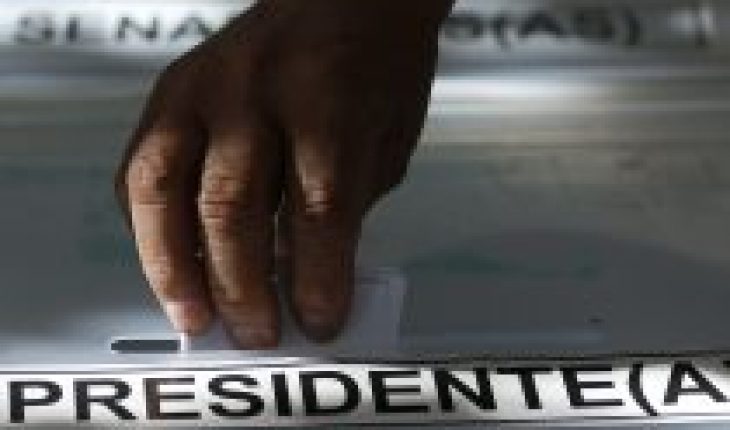In a recent column, I describe the confusion that exists around the diagnosis on which the need for political regime change is based. In it, he explained that the causes of Chile’s political problems lie on the functioning of the parties and an institutional framework that hindered great changes, but not on presidentialism. Likewise, I address the inconsistencies of pointing out an intention to deconcentrate power, but to propose models – such as parliamentarism and semi-presidentialism – that have an even greater potential for concentration of power in the Executive. On this occasion, I want to dwell on two aspects that have not been discussed together: (a) the potential costs of installing a new political regime and (b) the risk these could pose to the legitimacy of the new Constitution.
Any institutional change, especially a far-reaching one such as the potential replacement for presidentialism, entails an indefinite period of adjustment. Citizens will require time to understand how a new regime works, while politicians and parties will have to learn to negotiate and relate under this potential scenario. Even if a new semi-presidential or parliamentary system could perform relatively well in Chile (I don’t think any of them manage to do significantly better than our presidentialism), this could take years. If the country faces ineffective governments that fail to meet the pressing needs of the people, even for a brief period, it could increase the already high citizen unrest.
Likewise, both parliamentarism and semi-presidentialism are known for the instability and fragility of their governments. Comparative data show that countries in Europe with such political regimes have, on average, shorter governments than in Latin American presidentialism. Thinking that citizens – after the social outbreak and the COVID-19 pandemic – yearn for some certainty, governments that fail to project themselves over time would go in the opposite direction to deliver certainty in the short and medium term.
In addition, it is important to note that parliamentarism and semi-presidentialism spend considerable time without effective governments. That is, after the parliamentary elections are held or when a coalition government is undone, it can take weeks or months for the parties in the Legislature to reach an agreement to form a new government. While this is happening, the country would only be administered – not governed – by an interim cabinet that usually has no powers to seek the approval of new laws and that must be governed by the budget of the previous year.
On the other hand, I think that the fact of taking away the right of citizens to vote for the head of government has been taken too lightly. Electing the president – who is head of government and state in the presidential system – is the most important political act for the electorate in a country with a presidential tradition such as Chile. Comparatively, due to the relevance of the position, the presidential election has higher levels of voter turnout than other elections. This importance can also be observed in the casting of blank votes, which represent a clear will of the voter not to express a preference on the ballot. On November 21, only 31,082 white votes were recorded for the election of president, while that number was 13 times higher in the election of deputies (404,547 white votes) and 18 times higher in the election of regional councilors (544,049 white votes). That is, a significant portion of the electorate only attends to vote for the president and not for other authorities. This illustrates the importance for the people of the direct election of the president. In particular, removing this right by introducing a parliamentary or semi-presidential regime could raise questions about the legitimacy of a government not directly elected by the people. This is one of the reasons why prominent political scientist Gabriel Negretto considers that replacing presidentialism would be “politically unviable.”
The confusion in the diagnosis and the costs noted above could result in a poor performance of the first governments once the new Constitution is approved. Considering the level of uncertainty and need for concrete changes that the country has experienced since October 2019, to which are added the consequences of the pandemic and a compIn the coming years, it is difficult to think that people will have the will to continue waiting until a new political regime, whether parliamentary or semi-presidential, begins to show signs of a moderately acceptable functioning. The latter can take years.
If so, it would not only be questioned the government of the day. This leads me to reflect on a possible change of political regime and the legacy of the new Constitution. Apparently, among those who seek to end Chilean presidentialism there is a perception that the new Fundamental Charter will only really be seen as “new” if the presidential system is replaced. Perhaps, it is believed that other major constitutional changes would matter little if presidentialism, even reformed, is maintained. In that sense, a new political, parliamentary or semi-presidential regime would be symbolically tied to the new Constitution. For this reason, I believe that the potential change of the political regime represents a risk to the legitimacy (and continuity) of the new Magna Carta.
To conclude, given that the new political regime that is adopted will be indisputably and symbolically tied to the new Constitution, a bad performance of the former may end with strong questions towards the latter. Risk the new Fundamental Charter, with all the important things that have been highlighted about it (e.g., the first time in the history of Chile that citizens participate, including indigenous peoples and gender parity), to replace presidentialism based on an unjustified diagnosis, with significant costs in the installation stage and without any guarantee that the new political regime will be better, it is something that should be avoided. The most consistent and justified way to move forward around the political regime is to discuss reforms to our current presidential system.
* This column is partially based on the book “Presidentialism: Reflections for the Constitutional Debate in Chile“, which will be published by the publishing house Fondo de Cultura Económica in the coming weeks.
Christopher A. Martinez, Ph.D. in Political Science Associate Professor, Catholic University of Temuco
The content expressed in this opinion column is the sole responsibility of its author, and does not necessarily reflect the editorial line or position of El Mostrador.





